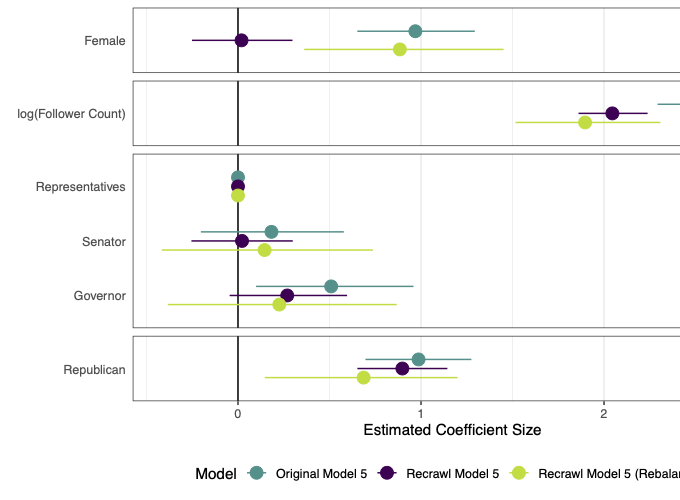Abstract
Used by politicians, journalists, and citizens, Twitter has been the most important social media platform to investigate political phenomena such as hate speech, polarization, or terrorism for over a decade. A high proportion of Twitter studies of emotionally charged or controversial content limit their ability to replicate findings due to incomplete Twitter-related replication data and the inability to recrawl their datasets entirely. This paper shows that these Twitter studies and their findings are considerably affected by nonrandom tweet mortality and data access restrictions imposed by the platform. While sensitive datasets suffer a notably higher removal rate than nonsensitive datasets, attempting to replicate key findings of Kim’s (2023, Political Science Research and Methods 11, 673–695) influential study on the content of violent tweets leads to significantly different results. The results highlight that access to complete replication data is particularly important in light of dynamically changing social media research conditions. Thus, the study raises concerns and potential solutions about the broader implications of nonrandom tweet mortality for future social media research on Twitter and similar platforms.
Publication
Küpfer, Andreas. 2024. “Nonrandom Tweet Mortality and Data Access Restrictions: Compromising the Replication of Sensitive Twitter Studies.” Political Analysis: 1–14. doi: 10.1017/pan.2024.7.
 Figure 6: Comparison of regression model coefficients based on the original, recrawled, and resampled dataset with their 95% confidence intervals. The resampled regression model is a simulation based on rebalanced party and gender ratios following the original dataset distributions.
Figure 6: Comparison of regression model coefficients based on the original, recrawled, and resampled dataset with their 95% confidence intervals. The resampled regression model is a simulation based on rebalanced party and gender ratios following the original dataset distributions.